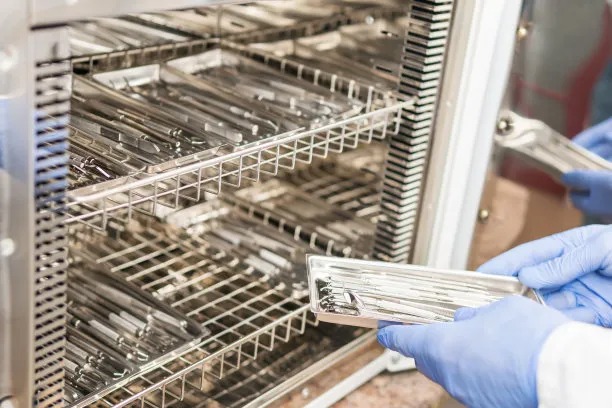Comprehensive Guide to Dental Implant Treatment Understanding Benefits Costs and Recovery for Optimal Oral Health
Summary: Dental implants are a transformative solution for those suffering from tooth loss, providing both functional and aesthetic benefits. This comprehensive guide delves into the intricate aspects of dental implant treatment, covering the benefits one can gain, the associated costs of the procedure, and the recovery process to ensure optimal oral health. By understanding these elements, patients can make informed decisions regarding their dental health. Through this understanding, the importance of dental implants in not only enhancing smiles but also improving overall well-being becomes clear.
1. Understanding the Benefits of Dental Implants

Dental implants offer numerous advantages, making them a preferred choice for many individuals facing tooth loss. Firstly, they provide a reliable solution that mimics the function of natural teeth, improving chewing and speaking abilities. Unlike dentures, which can slip and cause discomfort, implants are anchored securely in the jawbone, offering a level of stability that allows individuals to enjoy their favorite foods without worry.
Additionally, dental implants contribute positively to oral health. When a tooth is lost, the jawbone can begin to deteriorate, leading to further dental issues down the line. Implants stimulate the jawbone, preserving its density and preventing bone loss, which is crucial for maintaining facial structure and overall oral health. This aspect of implants also fosters a more youthful appearance.
Beyond physical benefits, dental implants can significantly enhance self-esteem and confidence. A full set of beautiful, functional teeth can empower individuals to smile freely, engage socially, and avoid the embarrassment that often comes with missing teeth. The psychological benefits of having a complete smile should not be underestimated, as they can lead to improved quality of life.
2. Costs Associated with Dental Implant Treatments
Understanding the costs involved in dental implant treatment is crucial for prospective patients. Dental implants can be a significant investment, with prices varying based on several factors, including location, the dentists expertise, and any additional procedures required, such as bone grafting. On average, the cost of a single dental implant can range from $1,000 to $3,000, which does not always include additional expenses like crowns, abutments, or other preparatory treatments.
Furthermore, dental insurance coverage can play a role in the overall cost. Some insurance plans may cover a portion of the implant procedure, but many do not fully cover it due to its classification as a restorative treatment. It is advisable for patients to consult their insurance providers to understand their specific coverage options and how it applies to dental implants.
While the upfront costs may seem daunting, it’s essential to view dental implants as a long-term investment in oral health. Unlike dentures or bridges, which may need replacing after a few years, dental implants are designed to last a lifetime with proper care. Thus, the long-term savings in terms of replacements and maintaining one’s dental health can outweigh the initial financial commitment.
3. The Recovery Process After Implant Surgery
The recovery process following dental implant surgery is vital for achieving the best outcomes. Immediately after the procedure, patients may experience some discomfort, swelling, or bruising, which is normal. Dentists often recommend over-the-counter pain relievers and ice packs to manage these symptoms. It is essential for patients to follow their dentist’s post-operative care instructions to minimize complications.
Typically, the healing process can take several months. During this period, the dental implant will fuse with the jawbone through a process called osseointegration. This step is critical to ensure the stability and durability of the implant. Patients should attend follow-up appointments to monitor the healing progress and address any concerns that may arise.
Dietary modifications may also be necessary during recovery. Soft foods are usually recommended in the initial days to minimize discomfort while eating. Gradually, patients can return to a regular diet as healing progresses. Creating an oral hygiene routine that is gentle but thorough will help maintain the implant site clean and promote healing.
4. Preparing for Your Dental Implant Journey
Preparation for dental implant treatment involves several crucial steps to ensure the procedure’s success. Firstly, prospective patients should have a thorough consultation with their dentist to evaluate their oral health and determine if they are suitable candidates for implants. This evaluation may include X-rays, dental impressions, and a discussion of medical history and any potential risks involved.
Once deemed suitable for the procedure, patients should have realistic expectations about the timeline and outcomes of dental implants. Understanding that the process can take several months from initial consultation to the final placement of the crown is fundamental. Having patience and a positive mindset can greatly influence the overall experience.
Furthermore, it is essential to maintain open communication with the dental team throughout the journey. Patients should feel comfortable asking questions and discussing any anxieties they may have about the procedure or recovery. A good rapport with the dental provider can enhance patient satisfaction and confidence in the treatment process.
Summary:
In summary, dental implants represent a modern solution to tooth loss that not only restores functionality but also enhances aesthetic appeal and boosts confidence. Understanding the benefits, costs, recovery, and preparatory steps involved in the dental implant journey empowers patients to make informed decisions regarding their oral health. Investing in dental implants can lead to a lifetime of benefits, thereby promoting not only better oral health but an improved quality of life.
This article is compiled by Vickong Dental and the content is for reference only.



